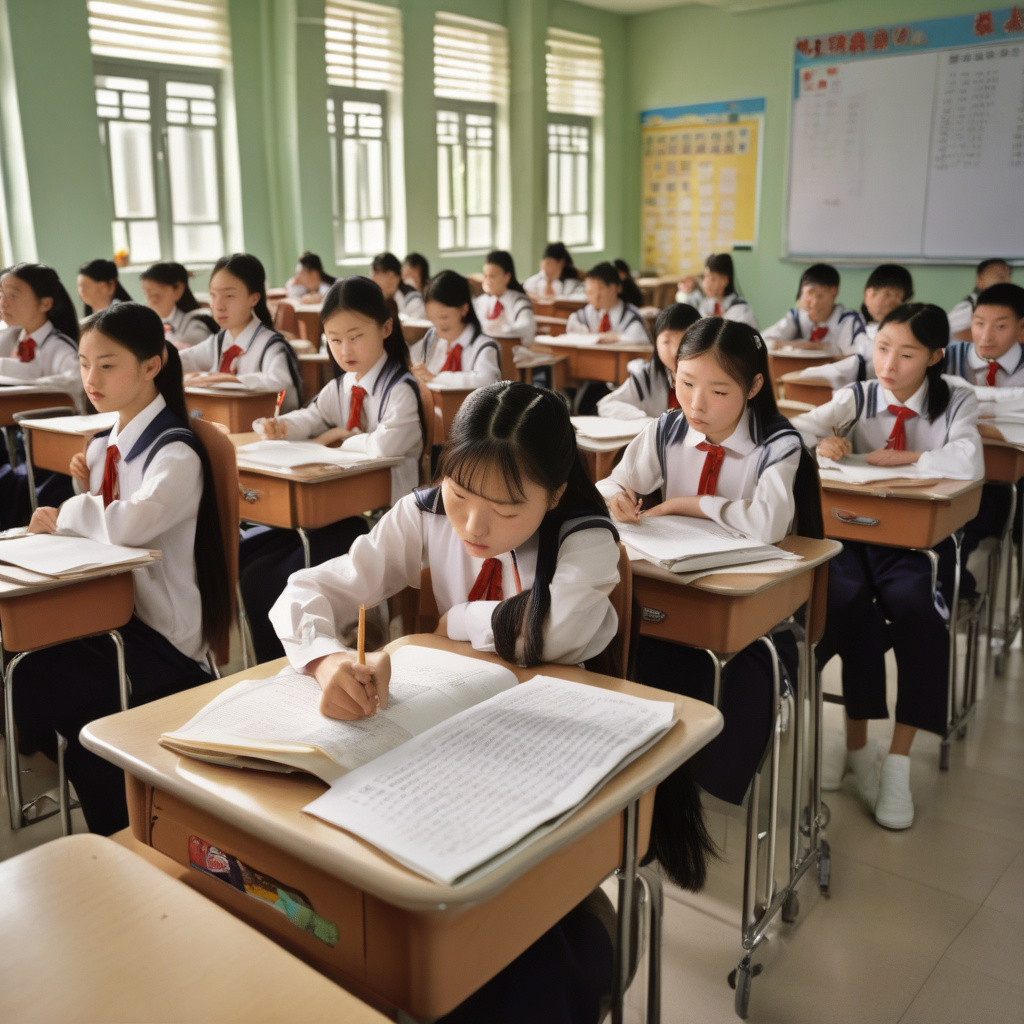China’s AI Tools Disabled for Gaokao Exam: What It Means for the Future of Education
In a bold move that has sparked both controversy and curiosity, China recently disabled AI chatbots from tech giants Tencent and ByteDance during the country’s crucial college entrance exam, known as the gaokao. This decision has raised important questions about the role of artificial intelligence in education and its potential impact on the future of learning.
The gaokao exam is a high-stakes test that determines the academic fate of millions of Chinese students, as their scores can directly influence which universities they are eligible to attend. With such significant implications, it is no surprise that the use of AI tools during the exam has garnered attention and debate.
Tencent and ByteDance, two of China’s leading tech companies, had developed AI chatbots to assist students with last-minute questions, study tips, and emotional support during the stressful exam period. However, concerns were raised about the potential for these AI tools to provide unfair advantages to some students, leading to the decision to disable them for this year’s gaokao.
While the move to disable AI chatbots may have been a temporary measure to ensure a level playing field for all students, it also highlights broader questions about the role of technology in education. AI has the potential to revolutionize learning by personalizing instruction, providing instant feedback, and offering new ways to engage students. However, as seen in the case of the gaokao exam, it also raises concerns about equity, access, and fairness.
One of the key arguments in favor of using AI in education is its ability to tailor learning experiences to individual students’ needs. By analyzing data on students’ performance and preferences, AI can create personalized learning paths that help students master concepts at their own pace. This level of customization can be especially beneficial for students with diverse learning styles or abilities, allowing them to reach their full potential.
Furthermore, AI can provide immediate feedback on assignments and assessments, enabling students to identify and address their mistakes in real-time. This form of instant gratification can be motivating for students, as it reinforces their learning and encourages them to strive for improvement. By automating routine tasks such as grading, AI also frees up teachers’ time to focus on more meaningful interactions with students, such as mentoring, coaching, and individualized support.
Despite these potential benefits, the use of AI in education also raises valid concerns about privacy, bias, and dependence on technology. AI algorithms are only as good as the data they are trained on, which means that biases present in the data can be perpetuated and amplified by the AI system. Additionally, there are legitimate worries about the privacy and security of student data when using AI tools, as sensitive information could be vulnerable to hacking or misuse.
The decision to disable AI chatbots during the gaokao exam serves as a reminder that technology is not a panacea for all educational challenges. While AI has the power to enhance learning experiences and support students in new and innovative ways, it must be implemented thoughtfully and ethically to ensure that it benefits all students equally.
As China grapples with the implications of disabling AI tools for the gaokao exam, educators, policymakers, and technology developers around the world can learn valuable lessons about the responsible use of AI in education. By prioritizing equity, transparency, and student well-being, we can harness the potential of AI to create a more inclusive and effective learning environment for all.
In conclusion, the decision to disable AI chatbots during China’s gaokao exam raises important questions about the future of education and the role of technology in shaping it. While AI has the potential to revolutionize learning, it must be used thoughtfully and responsibly to ensure that it benefits all students equally. As we navigate the ever-evolving landscape of education technology, it is essential to prioritize equity, transparency, and student well-being to create a truly inclusive and empowering learning experience for all.
China, AI, Gaokao, Education, Technology












